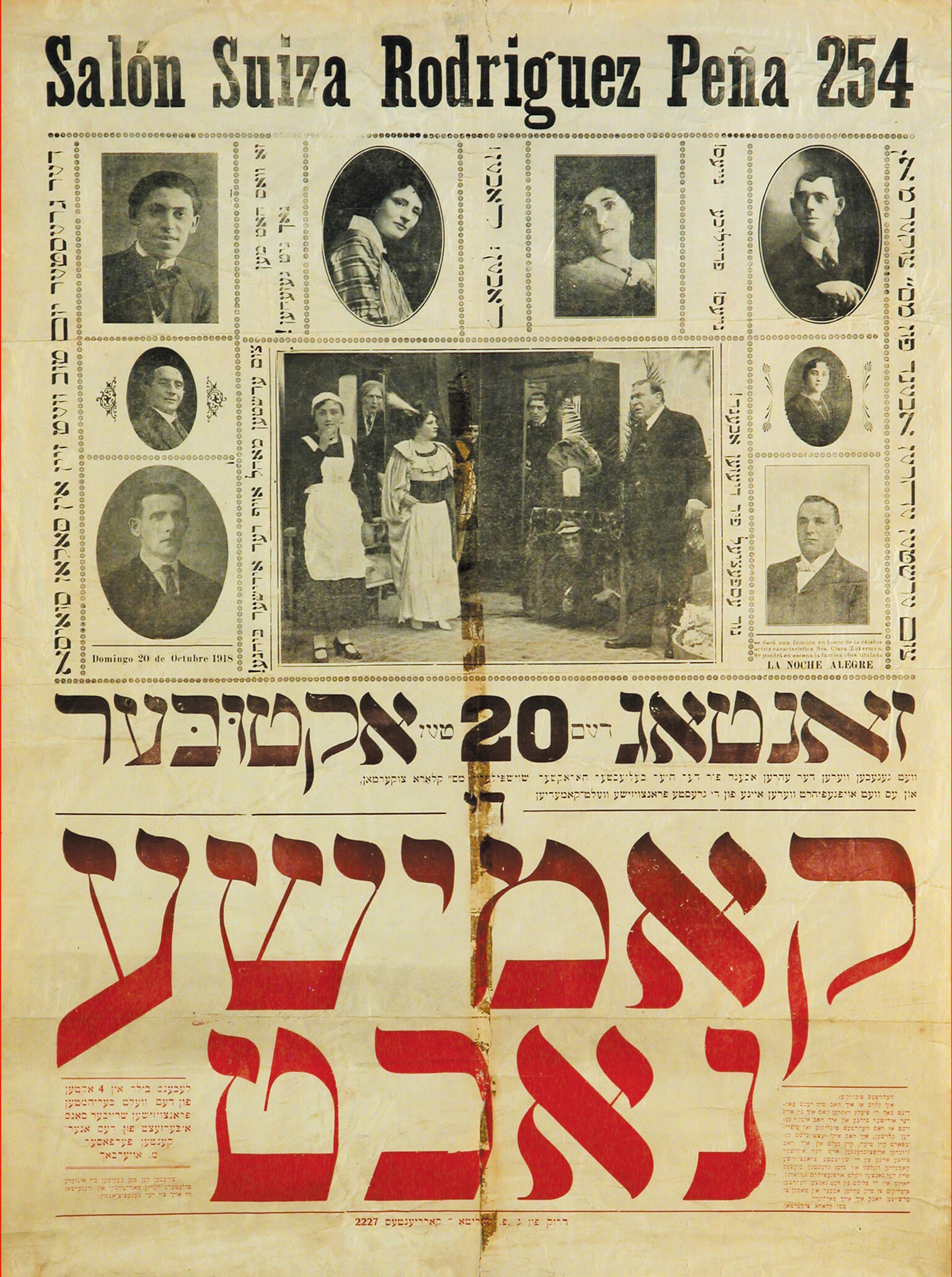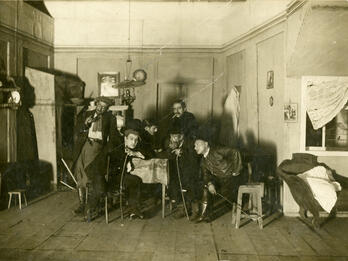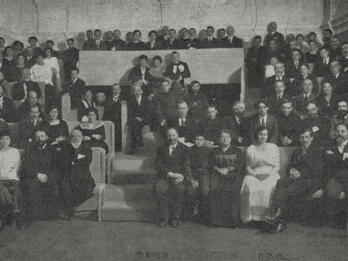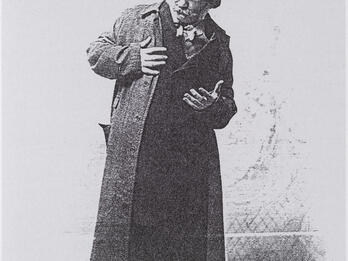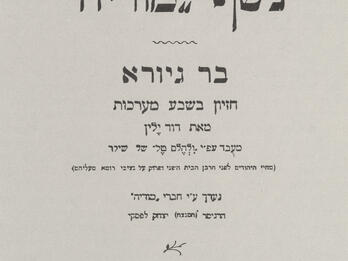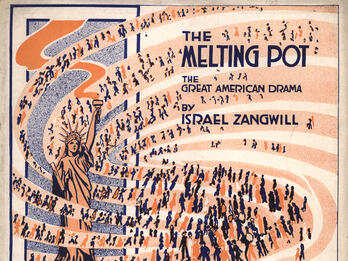Komishe nakht (Comical Night)
Advertisement for an October 20, 1918, Yiddish production of Komishe nakht, a French comedy by José Sanz Pérez, adapted into Yiddish by M. Oyerbakh. It was performed by Salon Casa Suiza in Buenos Aires. In 1861, the Swiss Philanthropic Society of Buenos Aires founded Swiss House (Spanish, “Casa Suiza”) as a place for new Swiss immigrants to connect through social gatherings and philanthropic meetings. Its main hall became a performance venue for diverse musicians, dancers, and theater acts, including, as evidenced here, Yiddish-language ones catering to the city’s Jewish immigrant population. It also served as a space for political gatherings. Starting in 1928, an Afro-Argentine organization called the Shimmy Club started using the space to celebrate carnival and other holidays through drumming and dance. In 1978, the military regime banned the activities of the Shimmy Club. Still, the basement of Casa Suiza served as a refuge for activists under dictatorship. Many consider the demolition of Salon Casa Suiza in 2015 to be consistent with larger efforts to erase Afro-Argentine history and cultural memory.
Credits
Item A014, Fundación IWO.
Published in: The Posen Library of Jewish Culture and Civilization, vol. 7.


